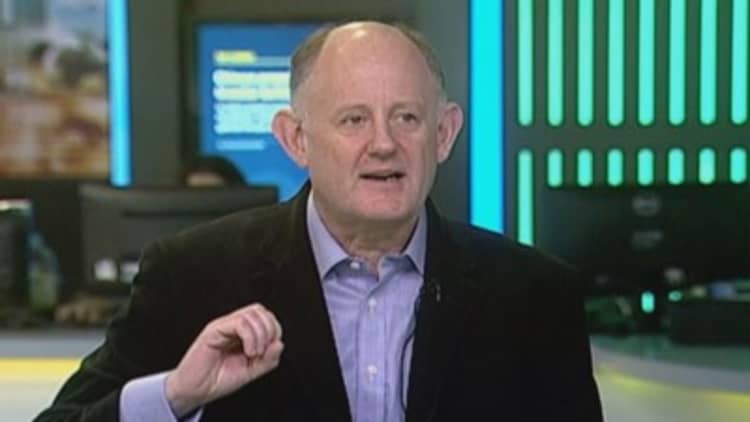The Swiss franc soared nearly 28 percent against the dollar on Thursday after Switzerland's central bank dumped a three-year-old cap on the franc's value against the euro, sending shockwaves through currency markets and pummelling traders who had bet against the franc.
The euro plunged as much as 30 percent below the 1.20 cap to a record low of 0.8500 francs per euro at one point before bouncing off its session low. The dollar plummeted to 0.736 francs, its lowest since 2011, before also paring losses.
Broader concerns about the euro sent it to its weakest in 11 years against the dollar.
The swings in the franc were the biggest since most major currencies moved to free-floating regimes in the 1970s. Dealers said they had seen a number of major investors lose as much as 20 percent before managing to complete trades to close their bets on a stronger dollar against the franc.
The move slammed speculative investors such as hedge funds, which entered the week with the most net short positions since the week ended June 9, 2013, according to CME Group data. The latest data showed hedge funds and other speculative investors were net short 24,171 futures contracts and another 662 options contracts, for a combined short of 24,833, worth about $3.5 billion. Each contract is worth 125,000 francs.
Belgian and French bonds, seen as the main targets for SNB investments in the euro zone, underperformed their regional peers, with 10-year yields both rising 3 basis points.
The Swiss National Bank has been resisting pressure for months to abandon the cap it imposed on the franc when investors picked it as their haven of choice in 2010 and 2011 from the euro zone's economic and political troubles. Switzerland is a heavily export-oriented economy, the SNB was fearful that a too-strong franc would undermine economic growth.
The prospect of outright money-printing by the European Central Bank being introduced as early as next week has ratcheted up the pressure, with the SNB seen by market players as buying euros consistently around 1.2009 francs per euro in recent days.
Traders viewed the SNB's move as a sign that the ECB would move ahead with quantitative easing when it meets on Jan. 22.
That's fueled a rally in the dollar against the euro, said Borthwick. Yields on the German 10-year bond fell to a record low of 0.402 percent.
The move still leaves the SNB with the same cocktail of policy difficulties to deal with. Like many economies in Europe, Switzerland is threatened by a debilitating cycle of falling prices and poor economic growth, which a strong franc worsens.
The bank also cut interest rates deeper into negative territory on Thursday and its chairman, Thomas Jordan, told a news conference it would remain active in markets. Dealers were already speculating that the bank had intervened on Thursday to stabilize the euro-franc rate but Reuters was unable to confirm.
The dollar was last down 13.6 percent against the franc at 0.88070 francs. The euro was last down 14.8 percent against the franc to trade at 1.02295 francs.
Against the dollar, the euro was last down 1.5 percent at $1.16180. The euro earlier hit $1.15675, its lowest level against the greenback since November 2003.
The dollar index, which measures the greenback against a basket of six major currencies, was last up 0.2 percent at 92.355, and earlier touched an intraday high not seen since November 2003.
The dollar was last down 0.78 percent against the safe-haven Japanese yen at 116.430 yen.


